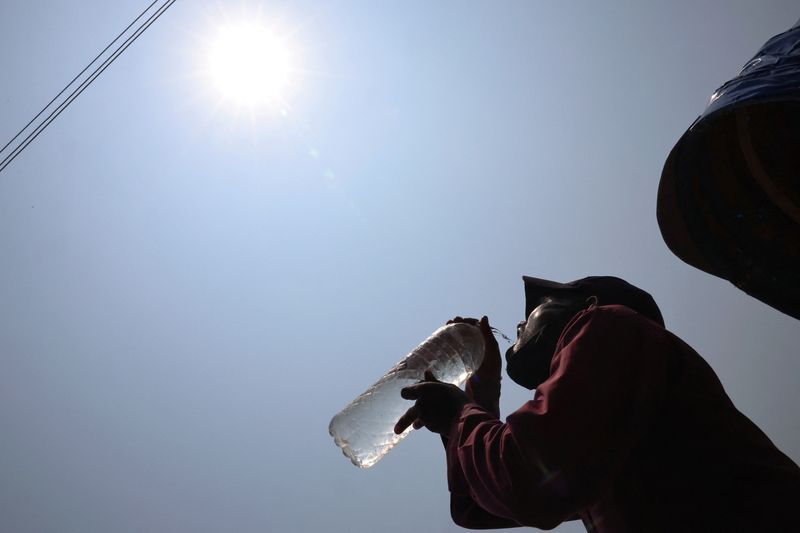By David Lawder
WASHINGTON (Reuters) -The U.S. Treasury and the U.S. Agency for International Development are calling leaders of multilateral development banks into an urgent meeting on extreme heat and its devastating impact on developing countries, according to Treasury officials.
The private, virtual meeting on Thursday morning – the first of its kind – is aimed at finding ways to shift more resources to help countries build climate resilience and adaptation to reduce extreme heat damage amid a summer of record temperatures globally, the Treasury officials told Reuters.
While investments to fight climate change have increased dramatically in recent years, much of that growth has gone towards the transition to clean energy sources and reducing carbon emissions, not in helping countries adapt to the harmful impacts, including more severe droughts, wildfires, violent storms and rising ocean levels.
As heat waves grip the world and claim at least hundreds of lives, U.S. Treasury Secretary Janet Yellen will use the meeting to tie the urgent needs of developing countries hardest hit by high temperatures to broader work that multilateral development banks are doing to increase their lending capacity to help fight climate change and other global crises.
“Extreme weather events, including heat waves, continue to become increasingly severe and frequent, from the East Coast of the United States to India,” Yellen said in remarks to the banks seen by Reuters. “Mitigating and responding to these events, and addressing climate change more generally, is a key priority for the Treasury Department.”
Yellen will tell the World Bank and its sister institutions that they should link temperature increases to their assessments of developing countries’ climate resilience and adaptation.
USAID Administrator Samantha Power, who in March launched a summit and an “action hub” to focus international donor attention on the issue, said that of 400 projects funded by the climate investment funds, only seven dealt directly with extreme heat.
“The multilateral development banks are our only hope of securing enough funding to directly address the scale of the extreme heat crisis,” she said, adding that rising temperatures were likely killing tens of thousands of people each year and are estimated to cost the global economy $2.4 trillion by 2030.
USAID is investing over $8 million in heat-resilient schools in Jordan, as extreme temperatures sap learning and shut classrooms.
World Bank Senior Managing Director Axel van Trotsenburg is participating on behalf of World Bank President Ajay Banga, while Inter-American Development Bank (IDB) President Ilan Goldfajn and Asian Development Bank President Masatsugu Asakawa will attend. Heads of the African Development Bank, the European Bank for Reconstruction and Development and the Japan International Cooperation Agency also will participate, Treasury officials said.

An IDB source said Goldfajn will emphasize that heat mitigation is a key part of the bank’s climate strategy. The bank in 2023 provided $100 million in technical assistance on climate issues and extreme heat, including helping Chile develop strategies to keep cities cooler by using green roofs, green space corridors and reflective infrastructure surfaces.
Goldfajn also will discuss the bank’s work in helping lead the development banks to work in a more coordinated fashion to achieve greater scale and impact to fight climate change. That has included the development of innovative financing instruments such as the use of International Monetary Fund reserve assets to back hybrid capital, the source said.

